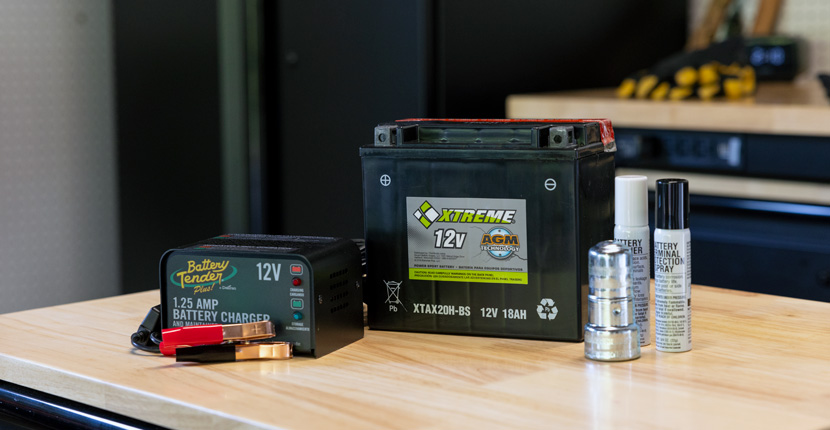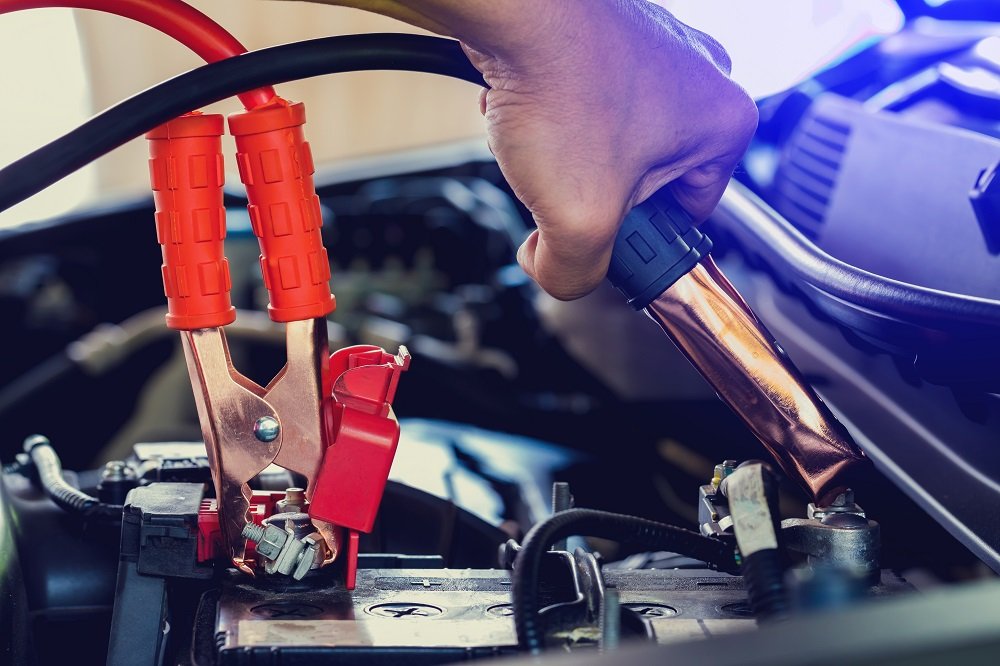Selecting the right car battery charger requires matching the charger to your battery size and type. Consider smart, automatic features for optimal battery maintenance.
Choosing the right car battery charger is crucial to enhance your battery’s longevity and performance. The market offers a myriad of chargers, each designed to meet different needs and battery specifications. Users must identify their battery’s voltage and amperage requirements before purchasing a charger.
Modern chargers come equipped with smart technology that can automatically adjust the charging rate, preventing overcharging and potentially extending your battery’s life. They also often include safety features such as spark-proof clamps and reverse polarity protection. Durability, ease of use, and the presence of maintenance modes are additional factors that can influence your decision. An appropriate charger not only saves time but also ensures your vehicle is ready to go when you are.
Choosing The Right Battery Charger For Car
Maintaining your car’s battery with the correct type of charger is crucial for ensuring its longevity and optimal performance. A suitable charger will not only keep the battery fully charged but also prolong its life. Using an inappropriate charger can lead to reduced battery efficiency and potential failure, which could accordingly render your vehicle non-operational. Regular and proper maintenance is key to avoiding these issues.
Inadequate or incorrect charging can cause several issues like battery overcharging or undercharging, both of which can have detrimental effects. Overcharging can lead to excessive heat, causing wear and potential electrolyte evaporation, while undercharging may result in sulfation, where lead sulphate crystals hinder the battery’s capacity to charge fully. Thus, selecting the ideal charger is not just a matter of convenience, but a vital aspect of vehicle maintenance.
Types Of Car Battery Chargers
Basic Trickle Chargers are ideal for maintaining a charge and preventing battery depletion over extended periods of inactivity. These chargers deliver a slow, steady charge, which can take several hours to a full day to replenish a battery’s power.
Smart Chargers come with advanced technology that allows them to regulate the amount of charge based on the battery’s condition. This prevents overcharging and can significantly extend the life of the battery.
Jump Starters offer a quick solution for dead batteries by providing the necessary surge to start a vehicle, but they don’t offer a full recharge. Suitable for emergency situations, they’re handy to keep in a car for unexpected battery failures.
| Type | Function | Charging Time |
|---|---|---|
| Solar Chargers | Eco-friendly options that use sunlight to generate electricity, ideal for trickle charging and reducing carbon footprint. | Varies based on sunlight |
Considering Charger Compatibility
Understanding your car’s battery type is the first step in selecting the right charger. Lead-acid batteries are common, including flooded, gel, and AGM varieties. Each type has distinct charging requirements. For optimal performance and safety, it’s crucial to use a charger compatible with your battery.
Charger-to-battery matching involves checking the output voltage and charging rate of the device. Incorrect specifications can lead to inefficient charging or potential damage. Ensure the charger’s voltage matches that of the battery, typically 12 volts for most car batteries. Also, consider the charger’s amperage output, reflecting how quickly it can charge the battery.
Vehicle-specific features may also influence the choice of charger. For instance, luxury cars with sophisticated electronics require a charger that won’t interfere with the vehicle’s systems. Also, take into account the environment and conditions where the car operates, as extreme temperatures can affect battery performance and, consequentially, the charging process.
Key Features To Look For
Choosing the right battery charger for your car involves understanding several key features. Amperage is crucial as it determines the charger’s ability to refill your battery swiftly. Higher amperage translates to faster charging speeds, which is essential when you need a quick turnaround. Nonetheless, it’s important not to sacrifice quality for speed.
The multi-stage charging process is another aspect to consider. This advanced feature enhances the longevity of your battery by applying a controlled charge that prevents overcharging and battery damage. It often includes stages like bulk charge, absorption, and maintenance modes, ensuring the battery receives optimal care during each phase of the recharging cycle.
Furthermore, safety features and protections such as overcharge protection, short circuit protection, and spark-proof connections are integral to prevent accidents and ensure the longevity of both the charger and your vehicle’s battery. A reliable charger will have built-in safety mechanisms to mitigate any potential risks.
Finally, consider the portability and ease of use of the battery charger. A lightweight, compact design with a user-friendly interface will ensure hassle-free operation and storage. Look for chargers with clear instructions and intuitive controls to simplify the charging process.
Smart Charging Technology
Smart Charging Technology has revolutionized the way we maintain our car batteries. By leveraging microprocessor-controlled chargers, users gain several advantages over traditional chargers. These innovative devices offer a myriad of benefits including precision, efficiency, and user-friendliness.
One of the key advantages of these chargers is their ability to automatically adjust the charging rate based on the battery’s condition. This not only saves time but also extends the battery’s lifespan. By using automatic charging modes, the charger can detect the battery’s charge level and optimize charging accordingly, preventing overcharging and undercharging.
Manual charging modes, on the other hand, allow for user control, making them ideal for those who prefer hands-on maintenance. However, the smart technology underlying microprocessor-controlled chargers ensures battery health is monitored and maintained with minimal user intervention, making them a superior choice for effective battery maintenance.
Determining The Right Size
Understanding the relationship between battery capacity and charger output is crucial for determining the right battery charger for your car. The battery capacity, measured in ampere-hours (Ah), indicates the amount of energy the battery can store, while the charger output, measured in amperes (A), defines the current supplied by the charger.
To calculate charge times, divide the battery’s capacity (Ah) by the charger’s output (A) and add a bit extra for efficiency losses. For instance, a 50Ah battery paired with a 10A charger typically needs around 6 hours to fully charge, considering energy losses during the charging process.
Ensuring the charger’s output is compatible with your car’s battery capacity prevents undercharging or overcharging, maintaining the battery’s longevity and performance.
Additional Considerations
Weather and environmental factors play a significant role in choosing a suitable car battery charger. Extreme temperatures can affect charger performance and battery health, making it vital to select a charger with climate-sensitive features. For instance, a charger with a temperature compensation function can adjust the charging rate depending on the environmental conditions, ensuring optimal charging and extending battery life.
Considering the charger brand and warranty is also essential. Reputable brands often provide a more extended warranty, which can be a testament to the reliability and quality of their products. It’s advisable to look for chargers that come with at least a one-year warranty, as this can offer peace of mind and security in your investment.
The user-friendly interface and indicators on a car battery charger can greatly enhance the user experience. Features such as clear digital displays, intuitive controls, and indicator lights help users easily monitor the charging process and understand the current battery status. These convenient features ensure that even individuals with limited technical knowledge can safely and effectively use their chargers.
Charger Maintenance And Care
Maintaining your car battery charger is crucial to ensure its longevity and reliable performance. Regularly clean its contacts and casing to prevent the accumulation of dirt and corrosion, which can impede electrical connections. It is advisable to keep the charger in a cool, dry place away from direct sunlight or extreme temperatures to prevent damage.
Charge batteries according to the manufacturer’s recommendations, avoiding overcharging which can negatively affect the charger’s lifespan. Periodical inspections for wear and tear on cables and connectors are also recommended. When not in use, proper storage of your charger involves disconnecting it and keeping it free from moisture and dust.
Recognizing when to replace your charger is important; signs include inconsistent charging, inability to hold charge, or visible damage. Upgrading to a charger with better energy efficiency or advanced features is often warranted after extended use or when it no longer meets your charging needs.
User Experience And Reviews
Top-rated charger models often feature advanced technology that adjusts the charging rate to suit battery size and type, often resulting in better longevity and performance. Models such as the NOCO Genius1 and the Battery Tender Plus are highly praised for their ease of use and reliability. Users appreciate the clear indicator lights and safety features such as spark-proof connections and reverse polarity protection.
Despite the high ratings, some common issues have been reported. Users express frustration over faulty units that fail prematurely or chargers that are incompatible with certain car batteries. Concerns about customer service responsiveness and warranty claims are also noted. Feedback straddles the line between highly satisfied and those dissatisfied with product inconsistencies.
Those considering a purchase benefit tremendously from evaluating others’ experiences. Going through customer reviews and testimonials can reveal patterns in product performance and durability, leading to more informed decisions. Real-world usage often highlights practical issues not apparent in specifications and advertising.

Credit: www.batteriesplus.com
Conclusion
Selecting the right car battery charger need not be daunting. Prioritize compatibility, durability, and your specific needs. Remember, a reliable charger ensures longevity for your battery. Embrace this wise investment and enjoy uninterrupted journeys. Thank you for trusting our guide for your automotive care essentials.
